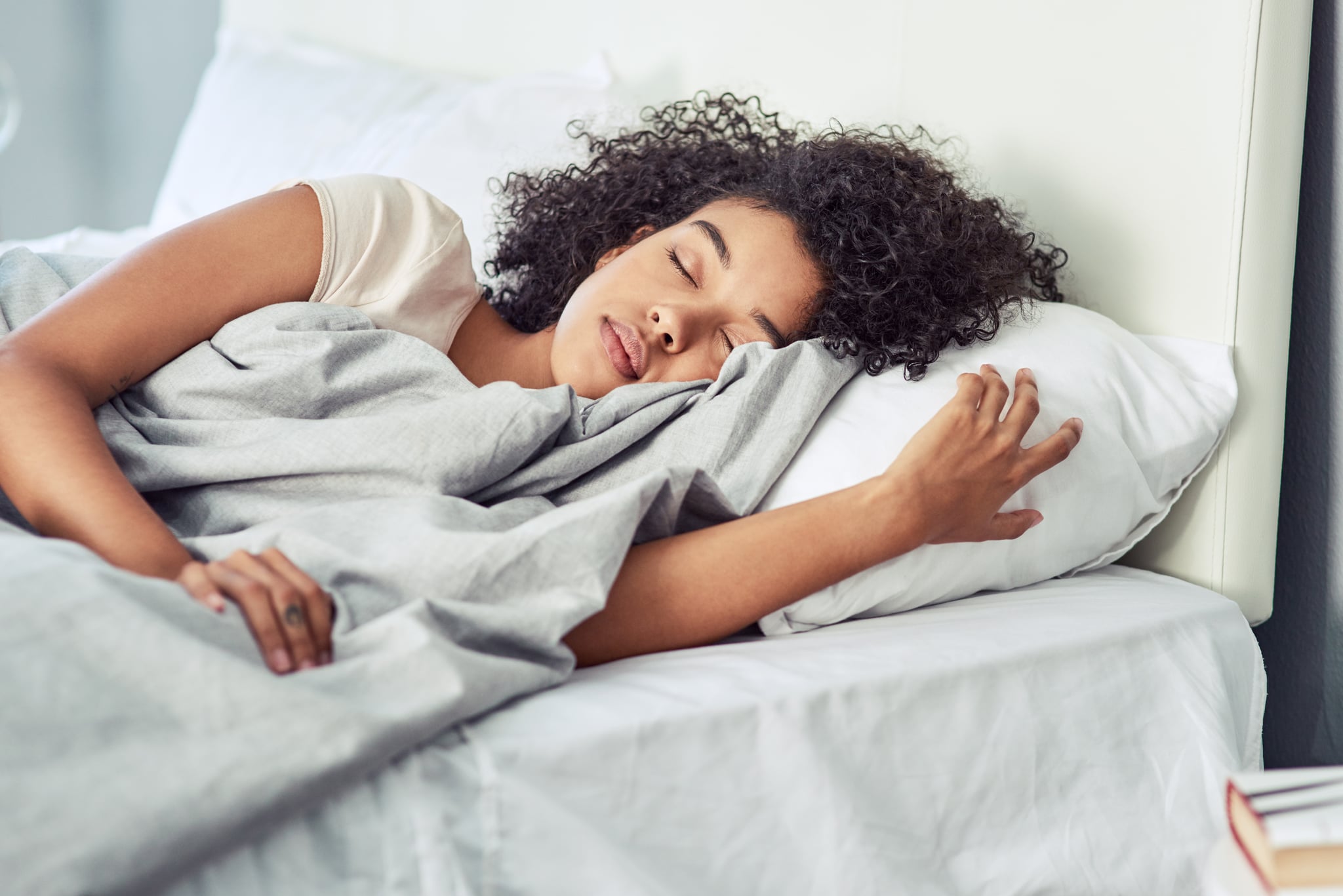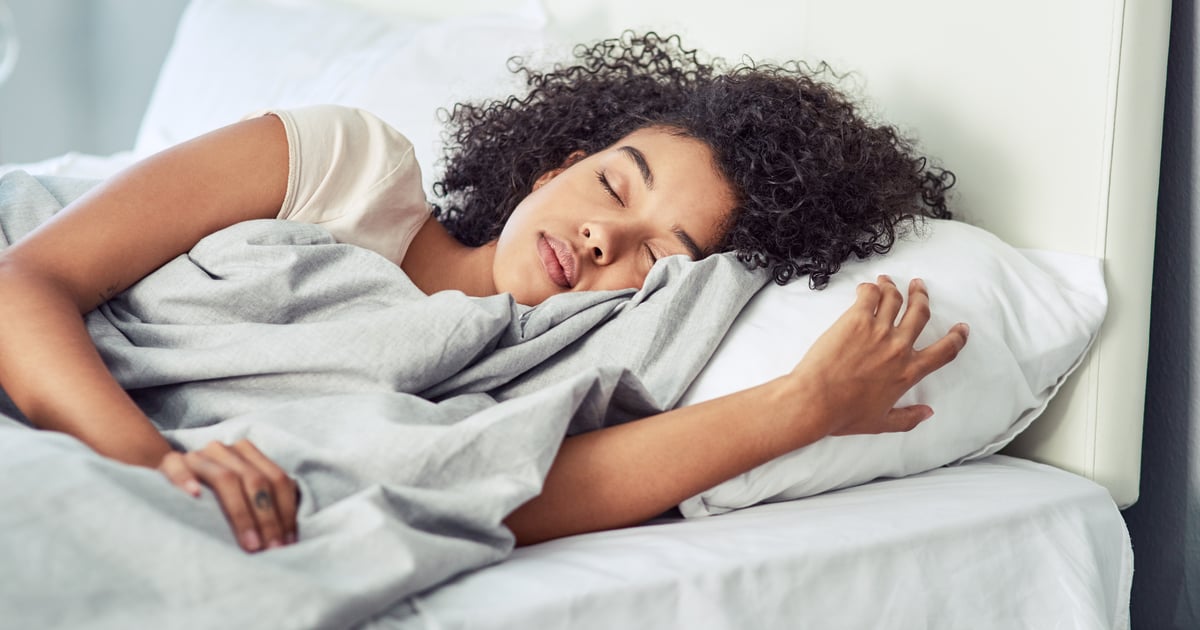
If you’ve ever struggled to fall asleep, you know how desperate you can be for answers — especially if it happens for nights on end. While melatonin seems to be the reigning champ of sleep supplements, it might not be the best choice if you’re waking up in the middle of the night, breastfeeding, or on the pill. These are just a few of the reasons that some people reach for valerian root instead.
“Valerian is a flowering plant that is native to both Europe and Asia, the root of which is widely used as a sleep aid,” says JoAnn Yánez, ND, MPH, executive director of the Association of Accredited Naturopathic Medical Colleges. Keep reading to learn more about this potential sleep supplement.
What Is Valerian Root, and How Can It Benefit Your Sleep?
The valerian plant has been used as a medicinal herb as far back as ancient Greece and Rome. “Its root has traditionally been utilized as a relaxing nervine due to its calming effect on the nervous system and as an antispasmodic due to its muscle-relaxing properties,” Leena Pandya, ND, a board member for the California Naturopathic Doctors Association, explains.
According to Dr. Pandya, valerian root works to increase levels of gamma-aminobutyric acid (GABA), which is the primary inhibitory neurotransmitter in the central nervous system. “Valerian root contains valerenic acid, which binds at the GABA receptor,” Dr. Pandya explains. That binding increases the body’s production of GABA, which then works to reduce excitability by inhibiting neuron transmission. This ultimately induces relaxation and decreases anxiety, which may help you fall asleep faster. In a systematic review of valerian-root research, six studies were found to have shown a statistically significant benefit for sleep, but the researchers cautioned that there may have been publication bias.
However, valerian root may also have other benefits that could put it ahead of other sleep supplements. “Depending on the dose, valerian root can be helpful for insomnia, anxiety, ADHD, muscle spasms (menstrual and gastrointestinal cramping), pain (specifically pain associated with tension, like migraines), and certain cardiovascular conditions,” Dr. Pandya says.
How Does Valerian Root Compare to Melatonin?
According to Aarti Grover, MD, medical director of the Center for Sleep Medicine at Tufts Medical Center, melatonin and valerian root both work in different parts of the central nervous system, and both can potentially help improve sleep. The hormone melatonin is produced by the pineal gland in the brain every night, typically peaking several hours before bedtime and working in tandem with the body’s circadian rhythm, Dr. Grover explains.
“Part of the reason I might use melatonin over valerian root is that physiologically it makes sense,” Dr. Grover tells POPSUGAR. “Melatonin can be suppressed in some people over time as they age or if they’re getting a lot of light exposure closer to that time of peak melatonin. I would mostly prescribe melatonin to improve sleep by fixing the circadian rhythm.”
However, one issue with melatonin is that despite being a natural hormone produced by the body, it isn’t the best supplement to take if you’re already in bed tossing and turning. Experts recommend taking melatonin about an hour before bedtime. Taking it when you wake up in the middle of the night can actually interfere with your circadian rhythm, so it isn’t the best choice for 3 a.m. sleeplessness, either.
“While melatonin will definitely help you fall asleep faster, it won’t necessarily keep you asleep if you struggle with frequent nighttime awakenings,” Dr. Pandya says. “GABA not only helps you fall asleep faster, but it may also help increase both your deep sleep and REM sleep.”
While melatonin and valerian root can both help with sleep, melatonin is more directly linked to your circadian rhythm, which has both advantages and drawbacks. Valerian root, on the other hand, could be helpful if you just need a simple way to soothe yourself back to sleep.
Does Valerian Root Have Any Side Effects?
One benefit of taking valerian root for sleep is that, according to Dr. Grover, it will generally have fewer side effects than a prescribed sleep medication, such as Ambien. That isn’t to say it’s without consequences, though.
“Valerian is generally considered safe. However, some people may experience side effects including headaches, dizziness, taste changes, and drowsiness,” Dr. Yánez explains. Dr. Pandya adds that oral supplements are generally well tolerated, although some people may experience gastrointestinal upset. Abruptly stopping valerian-root supplements can also cause withdrawal symptoms, according to Dr. Pandya, so it’s best to taper off slowly.
Additionally, Dr. Grover stresses that, like other supplements, valerian root is sold over the counter and not regulated by the Food and Drug Administration. It’s important to be cautious and read the label when selecting a supplement. This includes checking the dosage. While Dr. Pandya says that 300 to 600 mg. capsules have safely been used to treat insomnia in clinical studies, it’s best to discuss the dosage with your doctor and start with the lowest dose possible.
Should You Take Valerian Root For Sleep?
The experts POPSUGAR spoke with generally support trying valerian root for sleep. However, Dr. Yánez adds that it should be combined with other natural remedies, lifestyle and nutrition changes, and good sleep hygiene. You should also work with your doctor to address the underlying cause of your sleep problems.
“As a sleep physician, I try to prescribe the least amount of sleep aids, as we can typically fix insomnia with other things, such as behavioral interventions. The goal is to fix your sleep habits and sleep hygiene,” Dr. Grover says. “There’s enough data out there to suggest that valerian root may have some benefit. If I were to make a recommendation, I’m willing to do a short trial with a low dose and see if it helps with sleep. However, with over-the-counter supplements, I always get cautious about what’s in that bottle.”
Bottom line: there’s promising evidence that valerian root may be able to help with sleep, as long as you read the label carefully when you decide to buy. But as always, talk with your doctor and consider your medical history before starting a new supplement.
